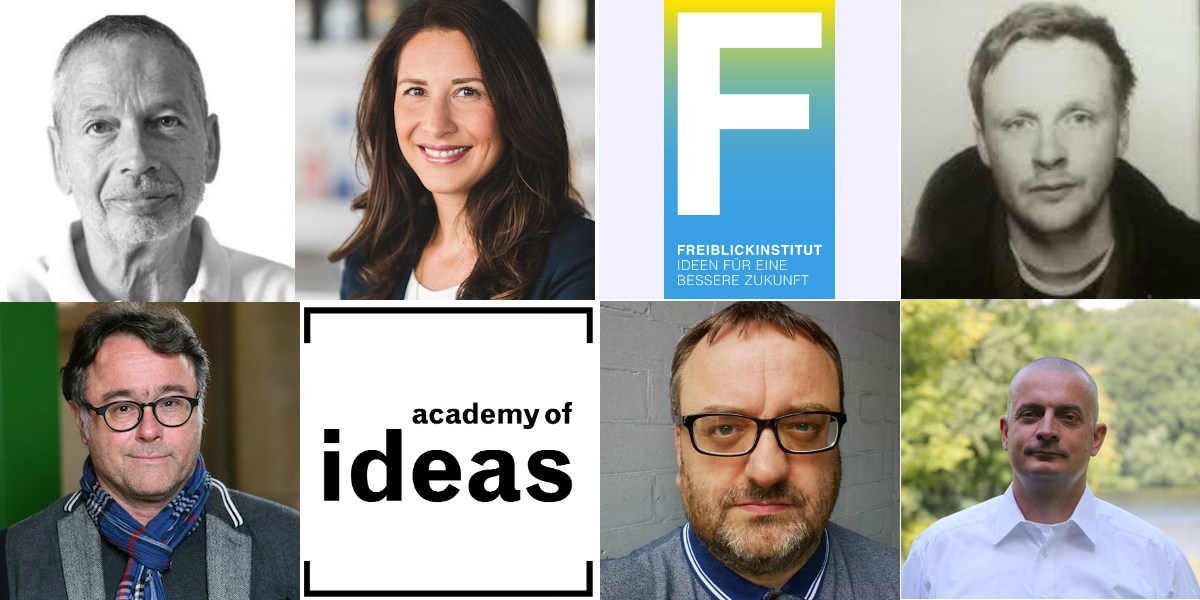Battle of Ideas Berlin 2018
Datum/Zeit:
6. November 2018, 18:00 - 21:00 Uhr
Ort:
University of Applied Sciences Europe, Dessauer Str. 3-5, 10963, Berlin
The Battle of Ideas comes to Berlin for an evening of debate at the University of Applied Sciences Europe, in association with Freiblickinstitut.
Session 1: Freedom in an age of prohibition (18:00-19:00)
As citizens, we in Germany enjoy freedom of action. According to basic law, our right to a self-determined life can only be restricted if our actions violate the rights of others. But the scope for interpretation is shown by the disputes over alcohol consumption in our local transport systems, barbecues in parks or smoking in public places.
A journalist, writing for Die Welt, recently complained that beer drinking in Berlin’s underground trains had become an integral part of the city, despite the existing alcohol ban. The ban could only be enforced if a law, similar to the 2007 smoking law protecting non-smokers, was finally introduced.
There are increasing complaints that too many people do not abide by regulations. But is it true that drinking violates the rights of fellow commuters? Does the use of public transport not always require a certain degree of tolerance? There is no lack of potentially disturbing phenomena: mobile phones, loud conversations, dogs, a variety of odours, penetrating glances, inappropriate remarks, and more. Where does one person’s right to enjoyment, free development or relaxed informality end and another person’s right to peace and protection begin?
While most people would agree that alcohol is part of Berlin’s ‘attitude to life’, which is why prohibitions have never been able to establish themselves, the debate as to where tolerance should end continues. ‘Every spring the same thing: the debate about barbecues in parks’, Tagesspiegel reported in May, after the fire brigade and the police had stopped the grilling of 12 sheep on a barbecue site in a public garden, despite the fact that similar events had taken place in previous years. Is it true that stricter controls are needed because Berlin is growing, as some have concluded? Or are we developing a thin-skinned culture? Is the desire for prohibitions growing, while the ideal of individual freedom is losing importance?
The claim that the various bans are needed to protect citizens has been disputed. Smokers’ initiatives and other campaigners claim that they are more about regulating undesirable behaviour than about health and safety. The protests following the announcement that smoking would be permitted in designated areas in some train stations, those with an open roof, seem to support this view. Berliner Zeitung spoke of a ‘capitulation to smokers’ instead of seeing it as an imperative of tolerance.
Are we moving towards a society that will tolerate only activities deemed unproblematic, that is, will not disturb anyone? Or is it true that civility and consideration are fading? Are we losing our ability to compromise with each other? Who are the drivers of this development and what are its causes?
Speakers:
- Til Biermann: reporter, BILD / BZ
- Karin Dietrich: corporate relations director Central Europe, Diageo Germany GmbH
- Rob Lyons: science and technology director, Academy of Ideas; convenor, AoI Economy Forum
- Sascha Tamm: head of division for cross-sectoral tasks, Friedrich Naumann Foundation for Freedom; podcast host, Asozial
Chair
- Dr Stefan Chatrath: professor of sports marketing, University of Applied Sciences Europe, Campus Berlin
Der Blog Ruhrbarone hat die Veranstaltung live gestreamt. Der Mitschnitt findet sich hier: https://www.facebook.com/ruhrbarone/videos/1942004499440330/
Partners:
Session 2: Europe’s culture wars (19:45-21:00)
The fall of the Berlin Wall in 1989 was greeted with elation, as many observers saw the ‘reunification’ of Europe as the fulfilment of the continent’s destiny as a beacon of democracy, liberalism and enlightenment. ‘Now what belongs together will grow together’, declared former German chancellor Willy Brandt that autumn.
A generation later, many observers look at the newest developments with a trepidation that recalls the height of the Cold War. The spectre haunting Europe is not communism but populism, which many feel has been spreading from the East to the West. ‘Viktor Orban is Europe’s enemy within’, claims political scientist Jan-Werner Müller, while the EU Observer sees Orban’s election victory in Hungary in April as a boost to Europe’s populist forces.
And indeed, several European states now have governments that have been termed populist, illiberal or chauvinistic. The list now includes Italy, Austria – and even some German federal states like Saxony, where the AfD made great gains, too. Imperceptibly, a silent and not-so-silent culture war has erupted, with allusions to the Weimar Republic and dark forebodings about a new totalitarianism.
While each country is, of course, quite different, the issues driving the changes seem to be surprisingly similar: a rejection of the EU and of mass immigration. What can we make of the changes taking place? No one can deny that the rise of the so-called populists has also opened up the debate. But is this debate going in the right direction? Are we experiencing a new backwardness or a democratic awakening?
Speakers
- Professor Frank Furedi: sociologist and social commentator; author, How Fear Works: culture of fear in the 21st century and Populism and the European Culture Wars
- Professor Dr Michael Zürn: political scientist; director, Research Unit Global Governance, WZB (Berlin Social Science Center); professor, Freie Universiät Berlin; author, A Theory of Global Governance: authority, legitimacy and contestation
Der Blog Ruhrbarone hat die Veranstaltung live gestreamt. Der Mitschnitt findet sich hier: https://www.facebook.com/ruhrbarone/videos/1895368030584857/
Partners



